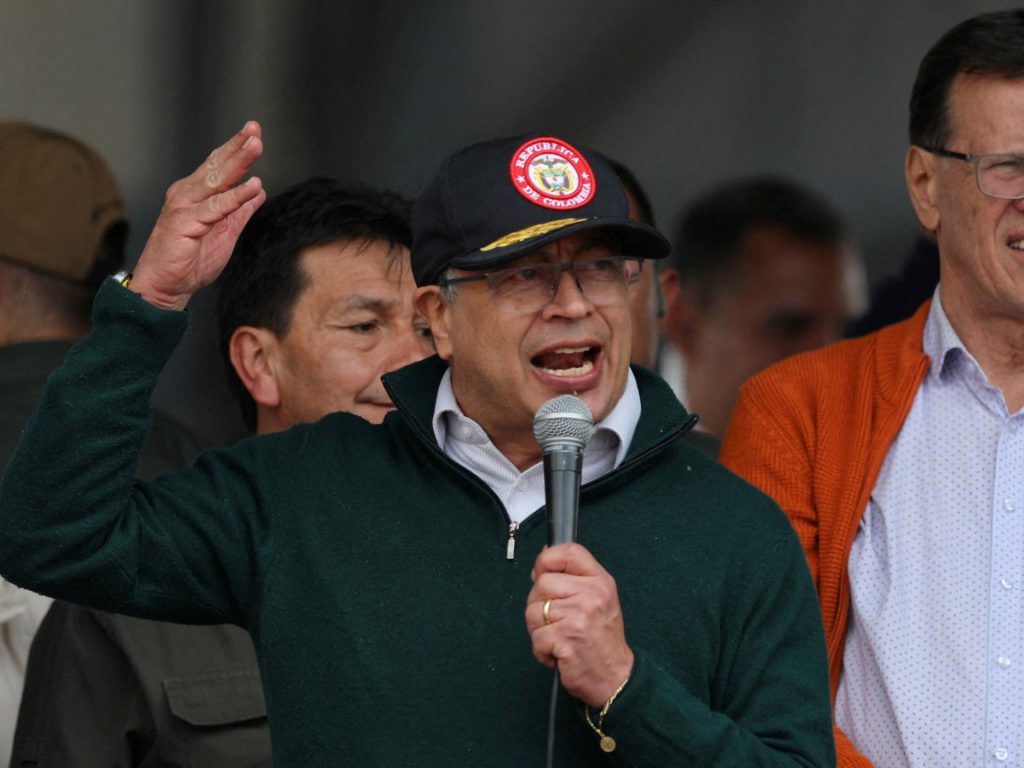Colombian President Gustavo Petro has made the decision to open an embassy in Ramallah, the Palestinian city. This move follows the recall of the Colombian ambassador from Tel Aviv and the closure of the embassy on May 3. Foreign Minister Luis Gilberto Murillo confirmed that President Petro had given the order to open the embassy in Ramallah, and he believes that more countries will begin to support the recognition of a Palestinian state. Colombia has been a vocal critic of Israel, with Petro announcing a decision to break diplomatic relations with Israel over its actions in Gaza.
President Petro, a left-wing leader who came to power in 2022, has been part of the progressive political wave known as the “pink tide” in Latin America. His stance on Israel has caused tensions, with Israeli Foreign Minister Israel Katz accusing him of being antisemitic and full of hate. In response to Colombia’s decision to cut ties with Israel, Israel announced that it was halting security exports to Colombia. Petro has also requested to join South Africa’s case accusing Israel of genocide at the International Court of Justice, highlighting Colombia’s commitment to protecting vulnerable populations in Gaza.
The decision to open an embassy in Ramallah aligns Colombia with countries like Bolivia and Chile, which have also cut ties with Israel. The United Nations General Assembly recently backed a Palestinian bid for full UN membership, with overwhelming support and a recommendation for the UN Security Council to consider the matter favorably. The ongoing conflict between Israel and Gaza has resulted in significant casualties, with thousands of people killed and wounded. Colombia’s decision to open an embassy in Ramallah reflects its commitment to supporting Palestinian rights and seeking protection for vulnerable populations in Gaza.
Ramallah, located in the occupied West Bank, serves as the administrative capital of the Palestinian Authority. Colombia’s decision to open an embassy in this city signifies its support for the Palestinian cause and its recognition of the importance of establishing diplomatic relations with Palestine. The move comes at a time when tensions between Israel and Gaza are high, with calls for international support for ending the violence and protecting civilians caught in the conflict. Colombia’s decision to open an embassy in Ramallah is a significant step in its efforts to promote peace and stability in the region.
In conclusion, Colombia’s decision to open an embassy in Ramallah marks a significant development in its foreign policy towards the Israeli-Palestinian conflict. President Petro’s commitment to supporting Palestinians and his vocal criticism of Israel have set Colombia apart from other Latin American countries. By aligning itself with countries like Bolivia and Chile in cutting ties with Israel and supporting Palestinian rights, Colombia is sending a strong message to the international community. As the conflict in Gaza continues to escalate, Colombia’s decision to open an embassy in Ramallah underscores its dedication to promoting peace, protecting vulnerable populations, and advocating for a just resolution to the ongoing crisis.















